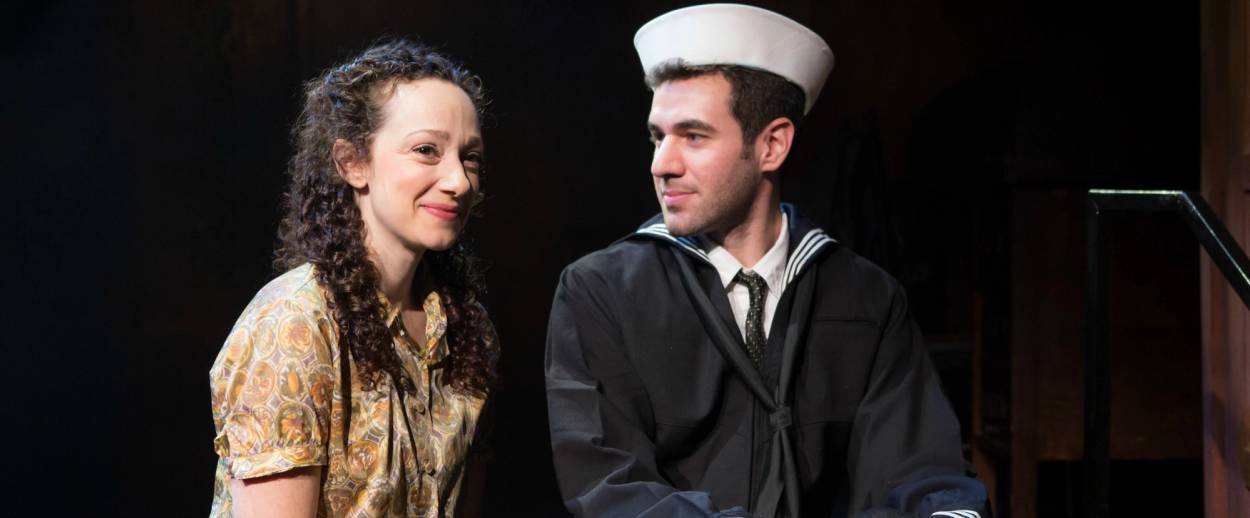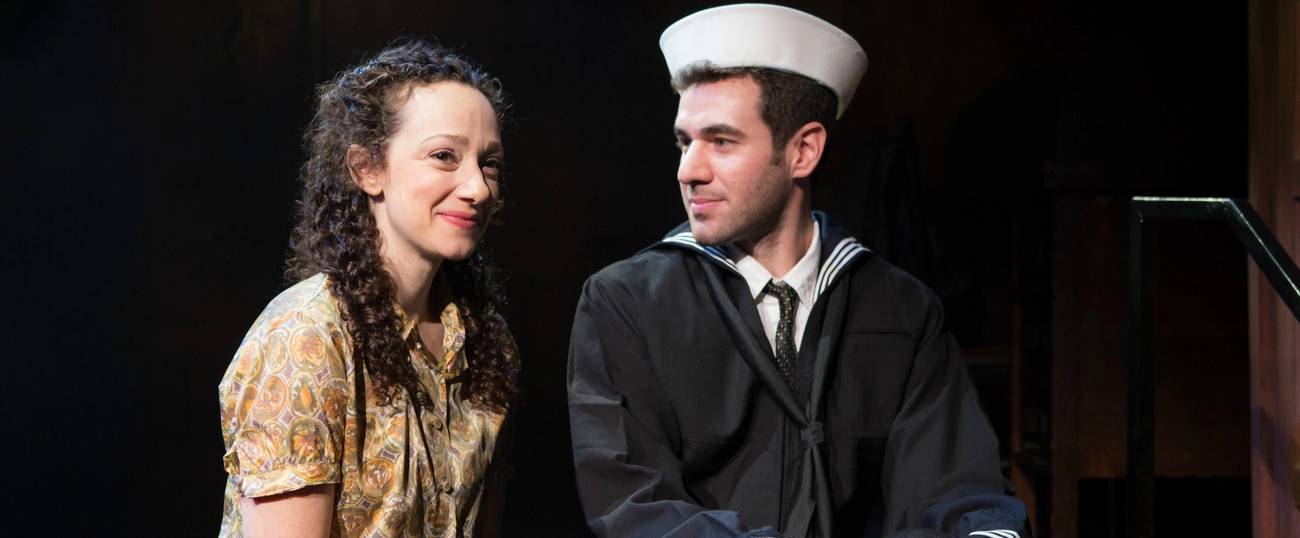Much Ado About ‘Goldstein’? Too Much, Maybe.
With song titles like ‘Visiting Your Mother,’ the new musical breaks little new ground




The historic Actors’ Temple in New York’s Theater District has premiered Goldstein. It boasts the subtitle, “A New Musical About Family.”
While the musical could be about many important Goldsteins, this family is fictional. In present-day, Louis Goldstein has written an Oprah-picked, Pulitzer-winning memoir (yes, titled Goldstein), tracing the history of his family in America. (Through a clever framing device, the show opens as a book talk he is presenting at the Actors’ Temple.) Louis’s parents and grandparents are all deceased, but one great-aunt remains, and when she reads the book she is less than pleased—Louis has resentment for his parents, and it shows in his writing. Aunt Sherri’s memories versus Louis’s interpretations of their shared history play out onstage, and the surviving Goldsteins argue about the greater context of anecdotes he shared with the public.
The setup is intriguing, but unfortunately, no one’s version of the story strays far from the dominant American-Jewish narrative.
Was grandpa Louie deserting the US Army in WWI an act of principle or cowardice? Were parents forbidding their daughter from enrolling in medical school an act of sexism or protection? While these are individually interesting stories, all of them fit comfortably in tropes of Jews settling and subsequently flourishing in the States. These anecdotes, while at times moving, are predictable, and while that’s not inherently problematic, a show that claims to look deeper into the passage of generations should not fish from the shallow end of the plot pool. The book, by Charlie Schulman, is as generic as the family name.
This musical, performed ably by a cast of six, mostly Broadway veterans, is frustrating that it promises to transcend, but never does. History and memory, and what they mean for the current generation, are a particular fetish of Jewry. Surely that’s a topic worthy of critique. But Goldstein is not where you’ll find it.
The songs (by Michael Roberts) are fine, though, like the material, keep very much inside the box. It really is a shame that the best number (performed by Sarah Beth Pfeifer) is the stereotype-imbued “Visiting Your Mother.”
Of course, whether or not a show is “good” is often beyond the point. A house full of mostly elderly Jews at the Actors’ Temple provided an audience that seemed engaged, and moved. Events such as these are as ripe for people-watching as they are for play-watching.
“Do you mind if I Pass-over you?” Asked one man to his row-mate at the performance I attended as the audience took their seats. “Get it? Passover?”
Then, in the first minute of the performance, two women from the balcony actually yelled at the actor that they couldn’t see him (he was at a loss for what to do until other patrons shushed the hecklers). It was magical, and messy, and authentic, and what the spirit of Goldstein can only hope to capture.
It is for this reason that unlike other such mediocre shows, Goldstein deserves a future—one of Jewish Day Schools and synagogue basements. Institutions that actively celebrate that Jewish fetish of our own history will find ample material here (and some fairly meaty roles, since everyone knows your cantor wanted to be an actor, anyway).
Goldstein marketing materials read that it’s “Like Rags mixed with a touch of Fiddler on the Roof,” but ultimately, Rags and Fiddler did not need the company.
Gabriela Geselowitz is a writer and the former editor of Jewcy.com.